Iran says girl, 16, who was dragged unconscious from Tehran train ‘after morality officers attacked her for failing to wear hijab’ is ‘brain dead’
An Iranian teenager who was allegedly attacked by morality police for not wearing the mandatory hijab is now “brain dead”, state media say.
Armita Geravand, 16, fell into a coma earlier this month after suffering “serious injuries” following a “physical attack” by female morality police officers in Tehran’s metro, a rights group said.
Hengaw, a Norway-based Kurdish human rights NGO, claimed that Armita was attacked by hijab officers at Shohada Station, a stop of the city’s metro, because she allegedly did not wear a hijab, which all women in Iran are required to wear under strict moral laws have to wear. .
The teenager is being treated under close guard at Fajr Hospital in Tehran.
“Follow-ups of Geravand’s latest health status indicate that her condition of brain death appears certain, despite the efforts of medical staff,” state media reported.
Armita Geravand, 16, who was allegedly attacked by the vice squad for not wearing the mandatory hijab, is now ‘brain dead’
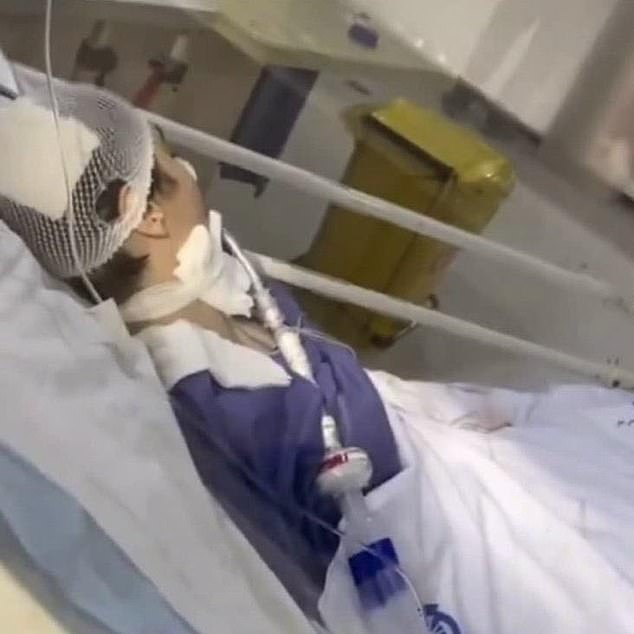
Armita fell into a coma earlier this month after suffering ‘serious injuries’ following an alleged ‘physical attack’ by female morality police officers in Tehran’s metro
Armita’s case has raised concerns that the 16-year-old could suffer the same fate as Mahsa Amini, a 22-year-old woman whose death in a coma last year in the custody of vice squad sparked months of nationwide protest.
Unverified CCTV footage, shared with local media earlier this month, appears to show the teenager walking to the train with two of her friends without a hijab.
Upon entering the cabin, one of the girls is immediately seen backing away and reaching for the ground, before another girl is dragged unconscious from the cabin by passengers.
Several passengers can be seen gathering to watch the girl being taken away.
Hengaw later shared a photo of a young girl lying in a hospital bed with various medical equipment strapped to her, claiming it was an image of Armita.
A source told an Iranian news agency that she was “taken to hospital in a comatose state” and required resuscitation because she had either stopped breathing or her heart had stopped.
Authorities denied that this was a case of state abuse against yet another young woman.
Tehran Metro Operating Company head Masoud Dorosti said the CCTV footage showed no sign of verbal or physical conflict between passengers or company employees.
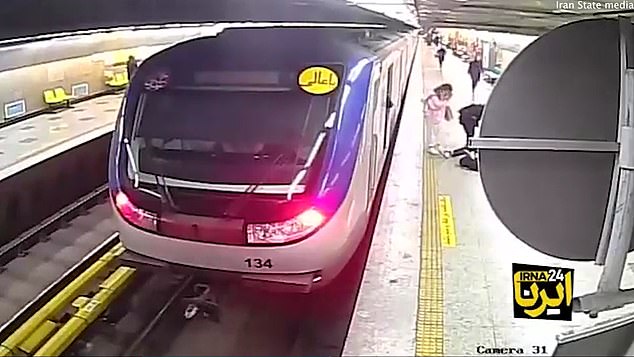
She was taken off the train by her friends and some passengers
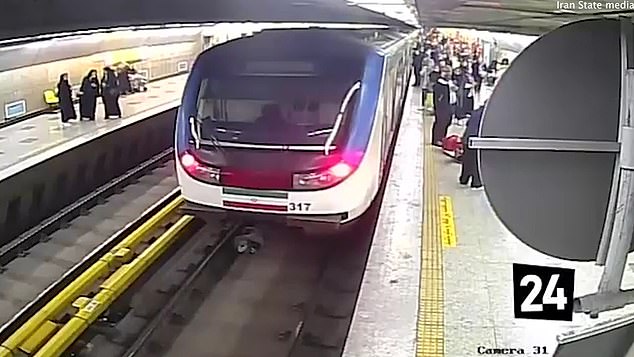
After she was taken off the train, several more passengers began to crowd around her
“There were no verbal or physical altercations between the student and passengers or subway employees. Rumors of a confrontation between the subway staff and the student are baseless and contradicted by the subway security footage,” he said.
Armita’s parents publicly stated that their daughter had suffered a drop in blood pressure, lost her balance and hit her head in the subway cab.
“I think my daughter’s blood pressure has dropped, I’m not sure, I think they said her blood pressure has dropped,” her mother said. But she added that there was no point in creating controversy.
But several activists, who spoke to Reuters on condition of anonymity, claim Iran has put heavy pressure on her parents.
“Her relatives said there are a lot of civilian clothes in the hospital,” said one of the activists in Iran.
The second activist said security forces had banned Armita’s parents from posting her photo on social media or speaking to human rights groups.
An Iranian journalist who investigated the incident was arrested and held by authorities for several hours after making inquiries at the hospital.
Major world figures condemned Iran for the incident.
German Foreign Minister Annalena Baerbock said on X, formerly Twitter: “Once again a young woman in #Iran is fighting for her life. Just because she showed her hair on the subway. It’s unbearable.
‘The parents of #ArmitaGarawand do not belong in front of cameras, but have the right to be at their daughter’s bedside.’
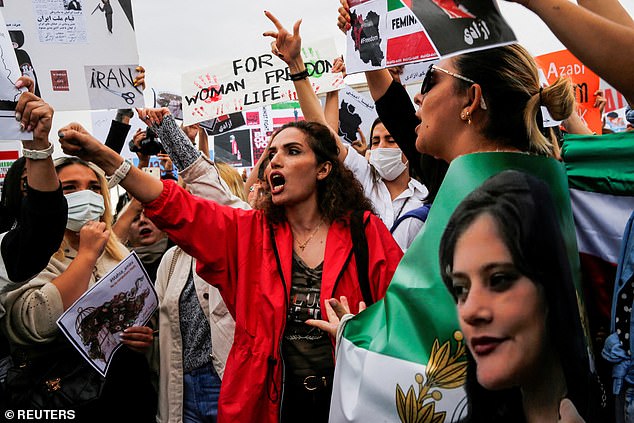
150 people have been killed and hundreds injured in the regime’s crackdown on protests
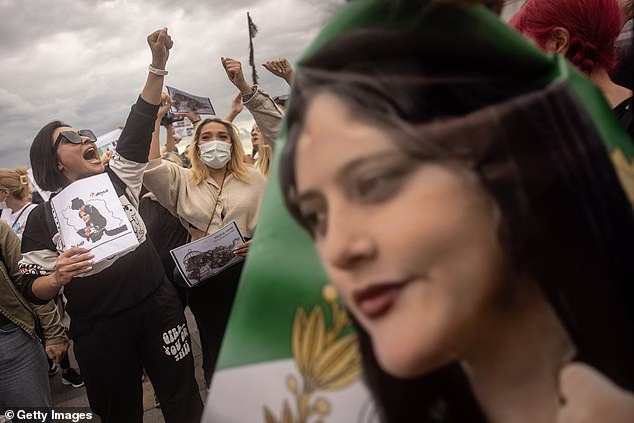
Protests have swept Iran since Amini’s death in police custody
Mahsa Amini was visiting the Iranian capital with her family when she was stopped by the special police unit that enforces strict clothing rules for women, including the mandatory headscarf.
Her brother Kiaresh said at the time that while he waited outside the police station for her release, an ambulance drove to the hospital.
He was told she was in a comatose state after suffering a heart attack and a brain attack.
Mahsa later died of her injuries, but Iran denied involvement in her death, claiming she died of multiple organ failure caused by lack of oxygen to the brain.
Nearly 80 people died last September during 11 nights of violent unrest across the country as Iranian citizens called for the death of the current leader, Ayatollah Ali Khamenei, after news of her death spread.
